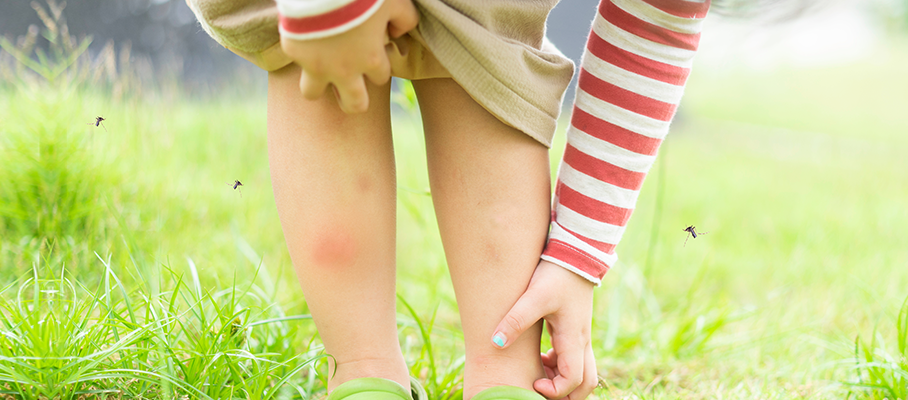dengue and malaria
Why Dengue or Malaria is more common during Monsoon and how it can be avoided?
Dengue and malaria are spread by bite of vector carrying mosquitoes known as Aedes and Female Anopheles respectively. These diseases are common during monsoon as there is water logging and clogging at domestic and public surroundings. Mosquitoes thrive in stagnant water. Around 40% of world's population lives in regions and surroundings where there is a risk of dengue transmission. Lack of hygiene, poor sanitation at public places is also one of the important reasons for the spread of dengue and malaria. Unfortunately, as of now no vaccine has been developed which can protect against dengue and malaria fever. Only avoiding mosquito bites can prevent it. However, simple precautions can go long a way for the same Anyone who lives in or travels to an at-risk area can undertake several steps to avoid being bitten by infected mosquitoes - Mosquito repellents Using a repellent with at least 10 percent concentration of diethyltoluamide (DEET). There are cream-based and spray-based mosquito repellents available. Avoid using DEET on young children. Mosquito traps and nets Nets treated with insecticide are more effective, otherwise the mosquito can bite through the net if the person is standing next to it. The insecticide will kill mosquitoes and other insects, and it will repel insects from entering the room. These nets can be retreated after a period of time. Door and window screens Structural barriers, such as netting on the windows keep mosquitoes out from entering our home and workspaces. Avoid strong scents Heavily scented soaps and perfumes, longer exposure to strong scents may attract mosquitoes. Timing Try to avoid being outside at dawn and dusk. Stagnant water The Aedes mosquito breeds and multiplies in stagnant water. Checking for and removing stagnant water from your surroundings can help reduce the risk of malaria, dengue and other infections. To reduce the risk of mosquitoes breeding in stagnant water - Turn buckets and watering cans over and store them under shelter so that water cannot accumulate. Remove excess water from plant pot and plates. Clean animal/bird water feeder daily. Scrub containers before use. Loosen soil from potted plants, to prevent puddles forming on the surface. Make sure scupper drains are not blocked and do not place potted plants and other objects over them. Use non-perforated gully traps, install anti-mosquito valves, and cover any traps that are rarely used. Do not place receptacles under an air-conditioning unit. Change the water in flower vases every second day and scrub and rinse the inside of the vase. Prevent leaves from blocking anything that may result in the accumulation of puddles or stagnant water. When camping or at a picnic, choose an area away from still water. Clean water from AC-Cooler regularly. Wishing you a Happy and Healthy life. Take Care. Contributed by Dr. Hiral Jasani, an expert in Orthopaedic/musculoskeletal system
 Home Visit
Home Visit Upload
Upload















 WhatsApp
WhatsApp